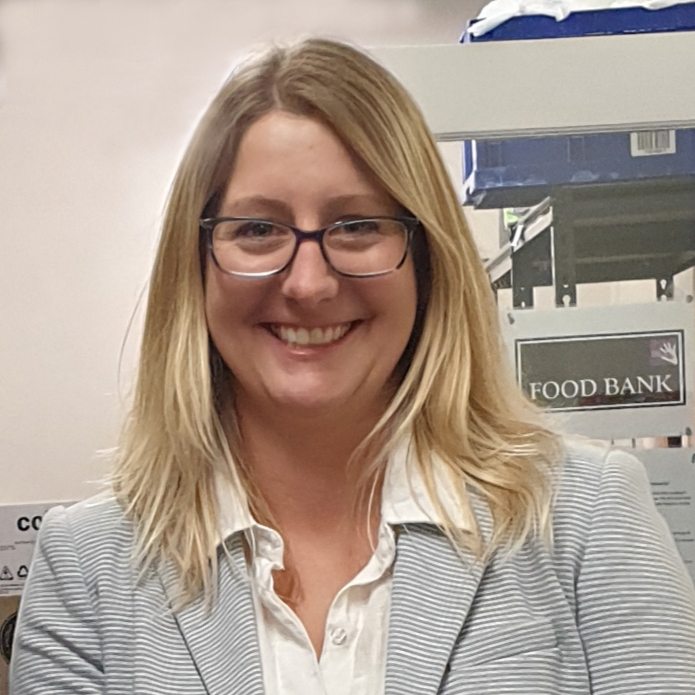
An ancient relic from the pre-internet era.
If your organisation doesn't accept donations online - why not?
By Kerryn Burgess, editor, Our Community Matters
It's never been easier for community groups and not-for-profits to collect donations online.
Website building and hosting services such as Squarespace, Wix and Weebly take the pain out of setting up a website, and donations platforms such as GiveNow, Everyday Hero and GiveEasy don't require hardcore tech or design skills either.
Yet when I did a quick poll of websites of community groups and not-for-profits in the town where I live - Kyneton, central Victoria, population 6951 - I found that 90% didn't have online donation functionality.
Astonished, I repeated my poll with other towns of similar population size, and got similar results.
Granted, my methods were unscientific, my sample size small. But at the very least, evidence suggests that many of Australia's sporting clubs, neighbourhood houses, environment groups and health services are passing up an easy opportunity to bring in money.
Please send a cheque in the mail
For a long time, I resisted owning a mobile phone. I was a late adopter; my friends called me a Luddite.
I believed that if somebody wanted to reach me, they could do so easily enough: I had a landline on my desk at work, and a landline at home. Why would I need a third phone? I didn't feel the need to be available 24/7.
I was reminded of my Luddite past when I visited the websites of organisations based in my town. "We gratefully accept donations. Please send a cheque to PO Box …"
A cheque? I haven't had a chequebook since 1996.
At least I could make a donation to that particular environment group if I was really determined (visit the post office during business hours, purchase a money order, search again for that postal address, buy a stamp…). In contrast, another group's website said, "All contributions towards the worthy cause are very welcome", but provided aboslutely no information on how I might make a contribution.
It was 2005 when I caved in and bought a mobile phone. Life has changed a lot since then. Hardly anybody under the age of 55 makes social phone calls any more, and Whatsapp, Facebook Messenger, texts, and mobile emails have taken over as our main communication tools. Without a mobile, I'd never hear from my friends.
If your organisation doesn't accept donations online in 2019, is it the fundraising equivalent of not owning a mobile?
Not necessarily, according to Kyneton foodbank operations manager Kerryn Willdenburg, who helps to ensure that people doing it tough in town don't go hungry. Her organisation, Kyneton Caring Community, has a website but so far no online donations functionality, although it accepts money via EFT.
"We run an op shop, and people will go in and donate cash over the counter," she told Our Community Matters. "Every now and then the schools and kinders run a fundraiser for us, and they'll pay us by cheque."
So far, Kerryn says, the organisation hasn't been disadvantaged by not having an online donations page, but it's about to update its website to stay ahead of the curve.
"In the past two years we've grown and changed and there's a lot more community support and recognition for us now. This has prompted us to ask how we can make it easier for people to donate. We've noticed that people go to our website and they want to be able to donate on the spot."
As part of its website update and rebranding, the organisation will soon offer a donor program to enable people to easily make regular donations, including online donations.
What donors expect in 2019
There's one simple reason why an organisation should accept donations online, according to the general manager of online donations platform GiveNow, Jarred Slomoi.
"It's 2019 and most people expect to be able to transact online," he says.
"Online donations are easier both for donors and for organisations. Send donors a link to donate in an email or social media post and they can donate right then and there, and receive a receipt straight away," Jarred said.
"Online donations (when processed by a professional and secure platform like GiveNow) are more secure than offline donations as sensitive information is handled appropriately."
There's only one good reason not to solicit online donations

"People go to our website and they want to be able to donate on the spot": Kerryn Willdenburg, Kyneton Caring Community foodbank.
Kyneton's showgrounds and footy oval, further along the main street from the foodbank, are a hub for many of its community groups. The Kyneton Football and Netball Club meets here, the Kyneton Agricultural Society puts on an annual country show, and the Kyneton & District Poultry Club regularly displays the region's finest roosters. Every spring and autumn, the Kyneton Horticultural Society (KHS) puts on a flower show, brightening the pavillon with the colour and scent of prize-winning daffodils, dahlias and roses.
None of these thriving community groups accepts donations via its website.
KHS president Nicholas Scott says the group is able to cover its costs through its activities and doesn't need to solicit donations.
"Two flower shows, book sales, plant stalls, raffles at members' nights, membership subs and the occasional donations" provide all the cash the group needs, he says.
"Most of the older members always question why we are raising so much money!"
Online donations: nothing to lose
GiveNow's Jarred Slomoi says it's an excellent problem to have.
"If they raise enough money by other means, good on them!" he says.
"It's important that organisations are aware of why they are asking for money, so I think it's great organisations aren't just fundraising blindly. What I would suggest, though, is to question whether the fundraising offline is as effective as it could be online.
"Specifically, what is the cost of the fundraising (in time and money), what is the quality of information organisations are collecting about donors (to thank them and engage them in the future), and are donors happy donating through the means they are offering?
"Online fundraising platforms tend to be the most time- and cost-effective methods for both donors and organisations, so I would recommend at least trying online donations to see if it is worthwhile."
Government grants and online donations: the mix
Cobaw Community Health runs programs and services ranging from child health to cardiac rehabilitation in the Macedon Ranges, including Kyneton. The organisation is in expansion mode, with construction of a new $10 million Healthy Community Access Hub underway on the edge of town, funded by the Victorian government.
Cobaw CEO Margaret McDonald told Our Community Matters that Cobaw first started receiving donations via its website six years ago.
"With promotion there is no reason why this form of fundraising couldn't be of more benefit to us, especially if it was for a specific campaign or program," she said.

GiveNow's Jarred Slomoi says online donations platforms are the most time- and cost-effective methods of receiving donations.
Cobaw used online donations specifically for a program for young people that was now winding down, she said. It drew a handful of donations, but "It's not a form of fundraising that is growing in its current form."
The importance of strategy
GiveNow's Jarred Slomoi echoes Margaret McDonald's idea that raising funds for a specific purpose is the way to go.
"The first place to start is developing a strong fundraising strategy," he said. "To do this, organisations should develop a clear understanding of why they need funding and how much they need. Once this has been determined, they should work out the most effective method (or methods) of raising those funds. It might be going directly to higher value donors, it might be to engage in a social fundraising campaign or it might be to set up a fundraising page and ask as many supporters as possible to donate.
"Organisations should consider the time and cost of their current and past fundraising strategies and assess whether the various online donations platforms or payments services will help them to be more effective."

The two most important words in fundraising are "Thank you".
Takeaways: six top tips for online fundraising on GivingTuesday
These tips don't apply only to Giving Tuesday. They apply to every day of the year. But they're worth revisiting every time you're running a campaign linked to a specific event - say Giving Tuesday, the end of the financial year, or Christmas - or for a specific cause, such as new lights for your tennis courts, or a new piece of playground equipment for your kinder.
1. Accept donations online.
If you solicit donations for any reason, make it easy for people to donate. That means accepting donations online. You can still offer donors the option of sending a cheque, but don't let that be your only method of receiving donations.
2. For specific events or causes (such as Giving Tuesday), create a dedicated page.
Make sure the page is clear, well designed and fast to load. And make it easy to find. It's good practice to link it directly to your website's main navigation bar.
3. Tell a story.
Probably the most important factor in generating donations is how you ask for money. When you set up an online appeal, you need to think carefully about what you're asking for. What is your group's reason for being? Why is this campaign important? Why should anybody else care? Tell a story and explain how your donors fit into the story.
4. Spread the word.
In emails, email signatures and social media posts, direct readers to your website (which will contain a prominent link to your appeal page) or send them straight to your donations page. Successful fundraising campaigns feature their online donations facility in all promotional and campaign information so people know they can donate online.
5. Ask people to give.
It really is important to be upfront about asking people for money. Don't soft‐pedal your request. Ensure any links to your online donations page say "Donate here", "Donate now" or "Please make a donation".
6. Say thanks.
The two most important words in fundraising are "Thank you" - not only because saying "thank you is" the right thing to say, but also because unless you say it promptly and sincerely, then it's unlikely your donor will contribute again.
